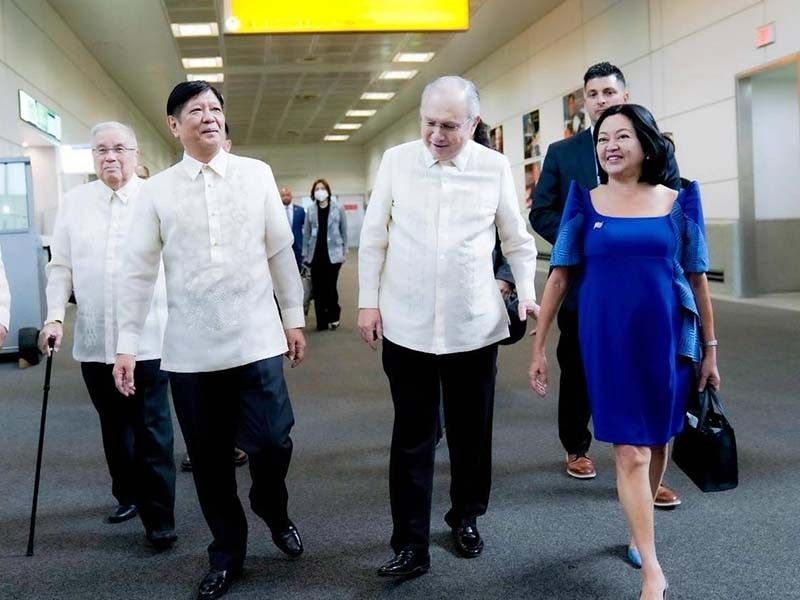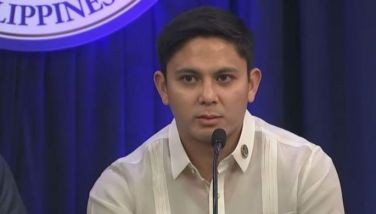Philippines to become upper middle-income economy – Marcos Jr.

NEW YORK – The Philippines is poised to become an upper middle-income country in a few years, with its economy expected to benefit from sound policies, partnerships with other countries and the private sector and a young workforce, President Marcos told investors yesterday.
Speaking at a New York Stock Exchange forum, Marcos said doing business in the Philippines is “an opportunity to reap the benefits of a vibrant economy” as the government has adopted policies to further liberalize the economy and welcome more foreign investments.
“Bouncing back from the pandemic, the Philippine economy has seen robust growth since last year and has returned to its path toward upper middle-income country status, achievable, we believe, within the next few years,” the President said.
“Against this backdrop, we have increased the scope for mutually beneficial investments that would mean more jobs and a better quality of life for Filipinos,” he added.
The World Bank defines upper middle-income economies as those with gross national income (GNI) of $4,096 to $12,695. The GNI consists of the total value of goods and services produced within a country as well as its income received from other countries, according to the budget department.
The Philippines, which posted a $3,640 GNI per capita in 2021, is classified as a lower middle-income economy.
Last month, Socioeconomic Planning Secretary Arsenio Balisacan said given its present growth pace, the Philippines’ average per capita income may reach the upper middle-income threshold set by the World Bank by 2024.
Elaborating on the government’s economic policies, Marcos said the Philippines passed laws that lowered corporate income tax rates and rationalized fiscal incentives. He added that the minimum paid-up capital requirements for foreign retailers and foreign startups bringing in advanced new technology have been reduced.
“We now allow full foreign ownership of companies providing public services, such as telecommunications, shipping, air carriers, railways, subways, airports and toll roads,” Marcos said, referring to the amendments to the Public Service Act, which opened key sectors to foreign investment.
The Philippines offers high-quality labor, a large consumer market and a wide range of fiscal and non-fiscal incentives while the government is committed to maintaining sound macroeconomic fundamentals, the President added.
Marcos said the country’s gross domestic product is projected to grow by 6.5 to 7.5 percent this year and by 6.5 to 8.0 percent from 2023 to 2028.
He claimed that the employment situation has improved following disruption caused by the pandemic.
Low unemployment
The President noted that the unemployment rate of 17.6 percent in April 2020 fell to 5.2 percent in July this year.
Marcos also cited accelerated manufacturing activity, which remained above the growth threshold of 50 for the past seven consecutive months and settled at 51.2 last August. He said trade is back to double-digit growth, with demand from trade partners boosting Philippine exports and with domestically-situated firms importing more inputs in anticipation of rising demand.
“At the same time, with our commitment to fiscal discipline, the country’s debt-to-GDP ratio has improved to 62.1 percent as of end-June this year from 63.5 percent in the previous year,” Marcos said.
The President also talked about the “massive” stimulus programs that supported vulnerable sectors at the height of the pandemic. He admitted that borrowings rose “substantially” during the pandemic but maintained that the government continues to reduce the cost of public debt through judicious debt management.
“Now that the economy is reverting to normalcy, the government is likewise heading back to the path of fiscal consolidation,” Marcos said.
The Philippines was able to maintain its investment grade credit ratings throughout the pandemic despite the wave of rating downgrades globally, he added.
“As we look forward to achieving upper middle-income status, we are also gearing up for ‘A’ territory credit ratings in the medium term,” the President said.
Marcos claimed that the Philippines has sufficient buffers against external shocks, citing the inflows of overseas Filipino remittances, receipts from business process outsourcing and foreign direct investment.
He noted that the Philippines’ gross international reserves stood at $99 billion as of end-August, equivalent to 8.3 months of import cover and more than enough to cover the economy’s foreign exchange needs.
At the same event, Marcos enumerated the top priorities of his administration, which include protecting the purchasing power of families by managing inflation, reducing the scarring effects of the pandemic and ensuring sound macroeconomic fundamentals.
“Thus, we are implementing policies that enhance food security; transport, reduce energy cost and logistical cost; strengthen social protection and enhance the quality of education and skills training of our workers,” the President said.
- Latest
- Trending





























